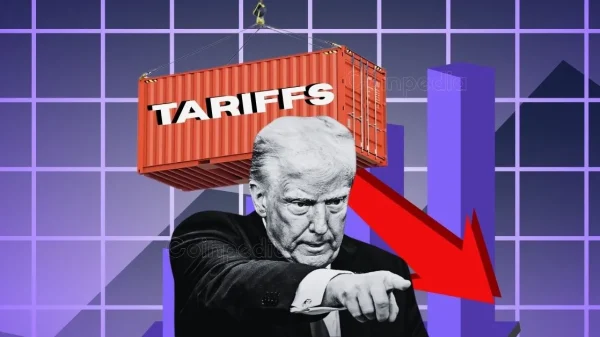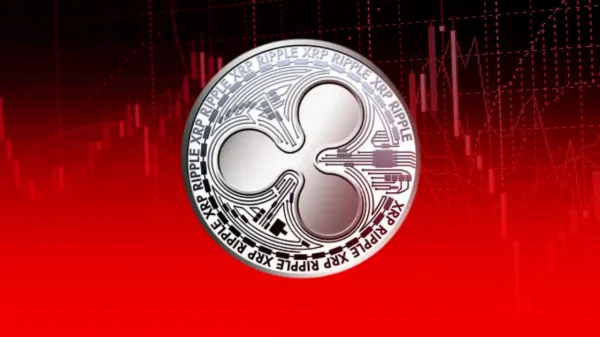The post Crypto Regulations in South Africa 2025 appeared first on Coinpedia Fintech News
In 2025, South Africa is thriving in the cryptocurrency landscape, with new laws providing more clarity as it integrates cryptocurrency into real estate transactions. South Africa’s crypto laws are a balance of innovation and security, as the country prioritizes protecting investors. Now, with new rules and regulations, South Africa is soon to emerge as a crypto leader on the African continent.
Table of contents
Crypto Regulations in South Africa 2025
May 15, 2025- (047643/2023) [2025] ZAGPPHC 481 (Standard Bank vs SARB)
- Pretoria High Court handed down a judgment in Standard Bank of South Africa vs South African Reserve Bank and others, ruling that cryptocurrencies do not constitute “capital” in terms of the Exchange Control Regulations, 1961.
- Crypto assets are not subject to a country’s strict exchange control regime, offering long-awaited clarity for the crypto industry.
May 6, 2025- Directive 9 for CASP and Travel Rule
- The approach covers all Crypto Asset Service Providers (CASP) acting as originators, beneficiaries, or intermediaries.
- It applies to entities involved in crypto-to-fiat exchanges, wallet custody services, crypto assets transfers, and the provision of crypto-related financial services.
- CASP to implement travel rules in line with FATF recommendations 16; non-compliance can result in administrative sanctions under Section 45C of the Act.
April 30, 2025- Travel Rule
- The Financial Intelligence Centre (FIC) mandated this travel rule, which applies to transactions exceeding ZAR 25,000 (approximately US$1,500).
- Details from all CASPs are required to collect information about the sender and the receiver, including names, account numbers, and identification details, to promote transparency and reduce risks.
- This aligns with the Financial Action Task Force (FATF) Recommendations aimed at complying with anti-money laundering rules.
What is The South African Government Saying About Crypto?
The South African government does not consider crypto as a legal tender, but it is actively regulating the industry and recognizing it as a financial product.
So far in 2025, its primary approach has been integrating crypto assets into existing financial frameworks rather than creating new legislation for digital assets. The government’s current priorities are:
- Evolution in the crypto landscape
- Enhancing the anti-money laundering compliance framework
- Integrating international standards in the country’s national system
- Fostering a secure environment for crypto regulations
Crypto Tax in South Africa
- Is crypto taxable? Yes, the South African Revenue Service (SARS) treats cryptocurrencies as “assets of intangible nature,” which are subject to capital tax gains and income tax.
- Reporting and Penalties: All crypto losses and gains are required to be annually reported; non-compliance can lead to a penalty imposed by SARS.
| Transaction type | Tax type/ Rate | Details |
| Long-term investment (capital) | CGT up to 18% (on 40% of gain) | Annual exclusion of 40,000 ZAR |
| Frequent trading/ business income | Income tax 18%-45% | Taxed at the marginal rate |
| Company gains | Corporate tax 27% (on 80% of gains) | Gains exceeding 40,000 ZAR credit |
| Mining, staking, airdrops, DeFi | Income tax 18%-45% | Guidelines are evolving |
| Buying/ holding/transferring crypto | Exempted | Not taxable |
Crypto License in South Africa
- Crypto Asset Service Providers (CASPs) operating in South Africa are required to obtain a Financial Services Provider (FSP) license from the Financial Sector Conduct Authority (FSCA).
- Crypto assets were considered as financial products by the FSCA in 2019, and since then, the licensing has become mandatory.
- CASPs must register as “accountable institutions” with the Financial Intelligence Centre (FIC) under the Financial Intelligence Centre Act (FICA).
- The licensing involves demonstrating compliance with regulations related to anti-money laundering (AML) and countering the financing of terrorism (CFT). It requires strict adherence to Travel Ryle.
Crypto Adoption Rate in South Africa
- Users rate: Approximately 10.49% of the internet users are using cryptocurrency, and it is expected to rise to 10.77% by 2026. South African crypto user estimates are expected to reach 7.05 million by 2026.
- Crypto Revenue: The current South African cryptocurrency market revenue is approximately US$615.5 million, with the average revenue per user expected to be US$90.7 in 2025. The revenue is growing annually at the rate of 3.63%, resulting in a total of US$637.9 million by 2026.
- Governments’ Crypto Holdings: No public disclosure yet; no evidence that the government owns crypto assets in official reserves. It rather focuses on private ownership and crypto market growth.
Endnote
In 2025, the South African government showed its support for blockchain and cryptocurrency through a complex regulatory framework. While the country does not consider crypto as a legal tender, it has legalized the trading of crypto as a legal financial product. The crypto regulatory agencies, such as SARB and FSCA, are moving towards a robust regulatory framework to create an enhanced crypto landscape.
.article_register_shortcode {
padding: 18px 24px;
border-radius: 8px;
display: flex;
align-items: center;
margin: 6px 0 22px;
border: 1px solid #0052CC4D;
background: linear-gradient(90deg, rgba(255, 255, 255, 0.1) 0%, rgba(0, 82, 204, 0.1) 100%);
}
.article_register_shortcode .media-body h5 {
color: #000000;
font-weight: 600;
font-size: 20px;
line-height: 22px;
text-align:left;
}
.article_register_shortcode .media-body h5 span {
color: #0052CC;
}
.article_register_shortcode .media-body p {
font-weight: 400;
font-size: 14px;
line-height: 22px;
color: #171717B2;
margin-top: 4px;
text-align:left;
}
.article_register_shortcode .media-body{
padding-right: 14px;
}
.article_register_shortcode .media-button a {
float: right;
}
.article_register_shortcode .primary-button img{
vertical-align: middle;
width: 20px;
margin: 0;
display: inline-block;
}
@media (min-width: 581px) and (max-width: 991px) {
.article_register_shortcode .media-body p {
margin-bottom: 0;
}
}
@media (max-width: 580px) {
.article_register_shortcode {
display: block;
padding: 20px;
}
.article_register_shortcode img {
max-width: 50px;
}
.article_register_shortcode .media-body h5 {
font-size: 16px;
}
.article_register_shortcode .media-body {
margin-left: 0px;
}
.article_register_shortcode .media-body p {
font-size: 13px;
line-height: 20px;
margin-top: 6px;
margin-bottom: 14px;
}
.article_register_shortcode .media-button a {
float: unset;
}
.article_register_shortcode .secondary-button {
margin-bottom: 0;
}
}
Never Miss a Beat in the Crypto World!
Stay ahead with breaking news, expert analysis, and real-time updates on the latest trends in Bitcoin, altcoins, DeFi, NFTs, and more.
.subscription-options li {
display: none;
}
.research-report-subscribe{
background-color: #0052CC;
padding: 12px 20px;
border-radius: 8px;
color: #fff;
font-weight: 500;
font-size: 14px;
width: 96%;
}
.research-report-subscribe img{
vertical-align: sub;
margin-right: 2px;
}
var templateIds = “6”;
var listOfSubscribed = [];
function subscribed_popupmodal(template_id) {
var templateId = ‘6’;
getAllSubscriberCategoryList([templateId]);
var subcribemodal = window.parent.document.getElementById(‘subscribe-modal-design’);
if (subcribemodal) {
var modalContent = `



Never Miss a Beat in the Crypto World!
Stay informed and gain the edge you need to navigate the crypto world. Select your subscription now
`;
subcribemodal.innerHTML = modalContent;
}
subscribe_unsubscribe_status(template_id);
//getAllSubscriberCategoryList(template_id);
}
function toggleSubscription(subscription, template_id) {
var subscriptionCheckbox = document.getElementById(subscription + ‘_’ + template_id);
var li = document.getElementById(subscription + ‘Selected_’ + template_id);
if (subscriptionCheckbox.checked) {
li.classList.add(‘active’);
} else {
li.classList.remove(‘active’);
}
}
function getAllSubscriberCategoryList(getcategoryId) {
jQuery.ajax({
url: ‘https://coinpedia.org/wp-admin/admin-ajax.php’,
type: ‘GET’,
data: {
action: ‘subscribe_api_ajax_request’,
apiurl: ‘/app/email_newsletter/list’,
},
success: function(response) {
var result = JSON.parse(response.message);
if (result.status === true) {
var idstosubscribed = []
// Populate listOfSubscribed with subscribed category IDs
result.message.forEach(listofcategory => {
if (listofcategory.subscribe_status === 1) {
if (!listOfSubscribed.includes(listofcategory._id)) {
listOfSubscribed.push(listofcategory._id);
}
if (!idstosubscribed.includes(listofcategory.news_cp_category_row_id)) {
idstosubscribed.push(listofcategory.news_cp_category_row_id);
}
}
});
idstosubscribed.forEach(id => {
var subscribeButton = document.getElementById(‘subscribe_’ + id);
var unsubscribeButton = document.getElementById(‘unsubscribe_’ + id);
if (subscribeButton && unsubscribeButton) {
subscribeButton.style.display = ‘none’;
unsubscribeButton.style.display = ‘block’;
var showDownloadReport = document.getElementById(‘download_report’);
if (showDownloadReport) {
showDownloadReport.style.display = ‘block’;
}
}
});
}
},
error: function(xhr, status, error) {
console.error(‘Error:’, error);
}
});
}
function subscribe_unsubscribe_status(getcategoryId) {
var elementTounsubscribe = parent.document.getElementById(‘unsubscribe_’ + getcategoryId);
var elementTosubscribe = parent.document.getElementById(‘subscribe_’ + getcategoryId);
jQuery.ajax({
url: ‘https://coinpedia.org/wp-admin/admin-ajax.php’,
type: ‘POST’,
data: {
action: ‘subscribe_api_ajax_request’,
apiurl: ‘/app/email_newsletter/list?category_row_id=’ + getcategoryId,
},
success: function(response) {
var result = JSON.parse(response.message);
if (result.status === true) {
parent.jQuery(‘.skeliton-loader-block’).hide();
var hasSubscribeStatusOne = false;
result.message.forEach(subscribeStatus => {
if (listOfSubscribed.includes(subscribeStatus._id) && subscribeStatus.subscribe_status === 1) {
hasSubscribeStatusOne = true;
}
if (subscribeStatus.notification_type === 3) {
parent.document.getElementById(‘monthlySelected_’ + getcategoryId).style.display = ‘block’;
parent.document.getElementById(‘monthly_’ + getcategoryId).setAttribute(‘data-id’, subscribeStatus._id);
if (subscribeStatus.subscribe_status === 1) {
parent.document.getElementById(‘monthly_’ + getcategoryId).checked = true;
}
} else if (subscribeStatus.notification_type === 2) {
parent.document.getElementById(‘weeklySelected_’ + getcategoryId).style.display = ‘block’;
parent.document.getElementById(‘weekly_’ + getcategoryId).setAttribute(‘data-id’, subscribeStatus._id);
if (subscribeStatus.subscribe_status === 1) {
parent.document.getElementById(‘weekly_’ + getcategoryId).checked = true;
}
} else if (subscribeStatus.notification_type === 1) {
parent.document.getElementById(‘dailySelected_’ + getcategoryId).style.display = ‘block’;
parent.document.getElementById(‘daily_’ + getcategoryId).setAttribute(‘data-id’, subscribeStatus._id);
if (subscribeStatus.subscribe_status === 1) {
parent.document.getElementById(‘daily_’ + getcategoryId).checked = true;
}
}
if (subscribeStatus.subscribe_status === 1) {
listOfSubscribed.push(subscribeStatus._id);
}
});
if (hasSubscribeStatusOne) {
elementTosubscribe.style.display = ‘none’;
elementTounsubscribe.style.display = ‘block’;
} else {
elementTosubscribe.style.display = ‘block’;
elementTounsubscribe.style.display = ‘none’;
}
}
},
error: function(xhr, status, error) {
console.error(‘Error:’, error);
}
});
}
function logSelectedSubscriptions(categoryid) {
var unsubscribemodal = document.querySelector(‘.unsubscribed-popup-modal .modal’);
var subscribedmodal = document.querySelector(‘.subscribed-popup-modal .modal’);
unsubscribemodal.innerHTML=”;
subscribedmodal.innerHTML=”;
var selectedSubscriptions = [];
var storeCheckedId = [];
var checkboxes = document.querySelectorAll(‘#subscription-options-‘ + categoryid + ‘ input[type=”checkbox”]’);
var errorMessage = document.getElementById(‘error-message-select’);
// Use a Set to handle unique data-ids
var uniqueSubscribedIds = new Set(listOfSubscribed);
checkboxes.forEach(function(checkbox) {
var dataId = parseInt(checkbox.getAttribute(‘data-id’));
if (checkbox.checked) {
selectedSubscriptions.push(checkbox.id);
storeCheckedId.push(dataId);
} else {
uniqueSubscribedIds.delete(dataId); // Remove unchecked data-id
}
});
// Update listOfSubscribed with unique values
listOfSubscribed = Array.from(uniqueSubscribedIds);
var selectedSubscriptionsString = selectedSubscriptions.join(‘, ‘);
var concatinateSubscribeId = […new Set(storeCheckedId.concat(listOfSubscribed))];
var categoryData = {
‘subscribed_categories’: concatinateSubscribeId
};
var requestSubscriberData = {
action: ‘handle_dynamic_api_request_with_headers’,
security: ‘9e5800e7dc’,
endpoint: ‘/app/email_newsletter/update_categories’,
token: ”,
data: categoryData
};
jQuery.ajax({
url: ‘https://coinpedia.org/wp-admin/admin-ajax.php’,
type: ‘POST’,
data: requestSubscriberData,
beforeSend: function(xhr) {
xhr.setRequestHeader(‘X-Requested-With’, ‘XMLHttpRequest’);
},
success: function(response) {
try {
response = response.data;
if (storeCheckedId.length === 0) {
var unsubcribedPopUpmodal =
`



You’ve Unsubscribed Successfully
We’re sorry to see you go! Your subscription has been canceled. If you change your mind, you can re-subscribe anytime. Thank you for being part of our community!
`;
unsubscribemodal.innerHTML = unsubcribedPopUpmodal;
document.querySelector(‘#subscribe-modal-design .modal’).style.display = ‘none’;
unsubscribemodal.style.display = ‘block’;
unsubscribemodal.classList.remove(‘hide’);
unsubscribemodal.classList.add(‘show’);
document.getElementById(‘subscribe_’ + categoryid).style.display = ‘block’;
document.getElementById(‘unsubscribe_’ + categoryid).style.display = ‘none’;
var showDownloadReport = document.getElementById(‘download_report’);
if (showDownloadReport) {
showDownloadReport.style.display = ‘none’;
}
} else {
var subscribedPopupModal =
`



Thank you for subscribing!
Thank you for subscribing to our crypto and blockchain newsletter! You’ll now receive the latest news, insights, and updates straight to your inbox. Welcome to our community!
`;
let selectedSubscriptionsArray = selectedSubscriptionsString.split(‘,’);
let subscribedCategories = selectedSubscriptionsArray.map(subscription => subscription.split(‘_’)[0]);
let subscribedCategoriesString = subscribedCategories.join(‘, ‘);
subscribedmodal.innerHTML = subscribedPopupModal;
if (document.getElementById(‘selectidname’)) {
document.getElementById(‘selectidname’).textContent = subscribedCategoriesString;
}
document.querySelector(‘#subscribe-modal-design .modal’).style.display = ‘none’;
subscribedmodal.style.display = ‘block’;
subscribedmodal.classList.remove(‘hide’);
subscribedmodal.classList.add(‘show’);
document.getElementById(‘subscribe_’ + categoryid).style.display = ‘none’;
document.getElementById(‘unsubscribe_’ + categoryid).style.display = ‘block’;
var showDownloadReport = document.getElementById(‘download_report’);
if (showDownloadReport) {
showDownloadReport.style.display = ‘block’;
}
}
} catch (e) {
console.error(‘Error parsing response:’, e);
}
},
});
}
function closeModal(template_id) {
var modalId = template_id;
var modal = document.querySelector(‘#’ + modalId); // Using querySelector to find the modal
if (modal) {
modal.classList.add(‘hide’);
modal.classList.remove(‘show’);
setTimeout(function() {
modal.style.display = ‘none’;
}, 500);
} else {
console.warn(‘Modal not found:’, modalId);
}
}
function closeunsubscribemodal() {
var unsubscribemodal = document.querySelector(‘.unsubscribed-popup-modal .modal’);
if (unsubscribemodal) {
unsubscribemodal.classList.add(‘hide’);
unsubscribemodal.classList.remove(‘show’);
}
setTimeout(function() {
unsubscribemodal.style.display = ‘none’;
}, 500);
}
function closesubscribemodal() {
var subscribedmodal = document.querySelector(‘.subscribed-popup-modal .modal’);
setTimeout(function() {
subscribedmodal.style.display = ‘none’;
}, 500);
if (subscribedmodal) {
subscribedmodal.classList.add(‘hide’);
subscribedmodal.classList.remove(‘show’);
}
}
function withoutLoginClicked(withoutlogin_id) {
localStorage.setItem(‘subscribe_without_Login’, ‘true’);
localStorage.setItem(‘subscribe_clicked_id’, withoutlogin_id);
}
document.addEventListener(‘DOMContentLoaded’, function() {
const subscribewithoutData = localStorage.getItem(‘subscribe_without_Login’);
const subscribe_clicked_cat_id = localStorage.getItem(‘subscribe_clicked_id’);
// Function to get cookies
function getCookie(name) {
let value = “; ” + document.cookie;
let parts = value.split(“; ” + name + “=”);
if (parts.length == 2) return parts.pop().split(“;”).shift();
}
// Get user token from cookies
const userToken = getCookie(‘user_token’);
if (subscribewithoutData === ‘true’ && userToken) {
// Call the modal function with the category ID
subscribed_popupmodal(subscribe_clicked_cat_id);
// Remove the flag and category ID from localStorage
localStorage.removeItem(‘subscribe_without_Login’);
localStorage.removeItem(‘subscribe_clicked_id’);
}
});
/************************** update susbcriber content **************************** */
function initializeSubscriptionButton() {
var initialListItems = document.querySelectorAll(‘.subscription-options input[type=”checkbox”]’);
initialListItems.forEach(function(item) {
console.log(item.checked, ‘Initial Checkbox checked status’);
});
var listItems = document.querySelectorAll(‘.subscription-options li’);
if (listItems.length === 0) return;
var anyActive = false;
listItems.forEach(function(item) {
var checkbox = item.querySelector(‘input[type=”checkbox”]’);
if (checkbox) {
if (checkbox.checked) {
item.classList.add(‘active’);
anyActive = true; // Set anyActive to true
} else {
item.classList.remove(‘active’); // Remove ‘active’ class if checkbox is unchecked
}
}
});
}
function updateButtonText(anyActive) {
var subscribeButtonSpan = document.querySelector(‘.subscribe-submit .changeBtnText’);
if (subscribeButtonSpan) {
if (anyActive) {
subscribeButtonSpan.textContent=”Subscribe Now”;
} else {
subscribeButtonSpan.textContent=”Unsubscribe”;
}
}
}
function updateSubscriptionButton() {
var listItems = document.querySelectorAll(‘.subscription-options li’);
if (listItems.length === 0) return;
var anyActive = false;
listItems.forEach(function(item) {
var checkbox = item.querySelector(‘input[type=”checkbox”]’);
if (checkbox) {
if (checkbox.checked) {
item.classList.add(‘active’);
anyActive = true; // Set anyActive to true
} else {
item.classList.remove(‘active’); // Remove ‘active’ class if checkbox is unchecked
}
}
});
// Update the button text based on whether any list item has the ‘active’ class
updateButtonText(anyActive);
}
document.addEventListener(‘click’, function(event) {
var clickedItem = event.target.closest(‘.subscription-options li’);
if (clickedItem) {
var checkbox = clickedItem.querySelector(‘input[type=”checkbox”]’);
if (checkbox) {
checkbox.checked = !checkbox.checked;
updateSubscriptionButton();
}
}
});
FAQs
Yes, crypto trading is legal in South Africa. The government actively regulates it as a financial product, and a recent court ruling clarified it’s not subject to strict exchange controls.
South Africa is considered crypto-friendly due to its progressive regulatory framework that recognizes crypto as a financial product and aims to foster a secure environment for its growth.
SARS treats crypto as “assets of intangible nature,” subjecting it to capital gains tax (up to 18% on 40% of gains, with an R40,000 annual exclusion) or income tax (18%-45%) depending on the transaction.
The Financial Sector Conduct Authority (FSCA) licenses Crypto Asset Service Providers (CASPs), while the Financial Intelligence Centre (FIC) oversees anti-money laundering (AML) and counter-terrorism financing (CFT) compliance.
Kaynak : CoinPedia



















































